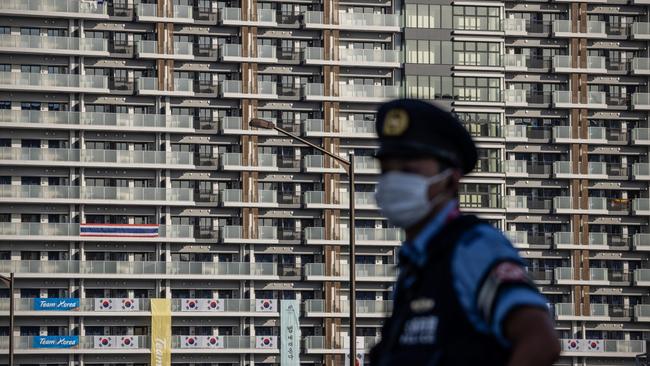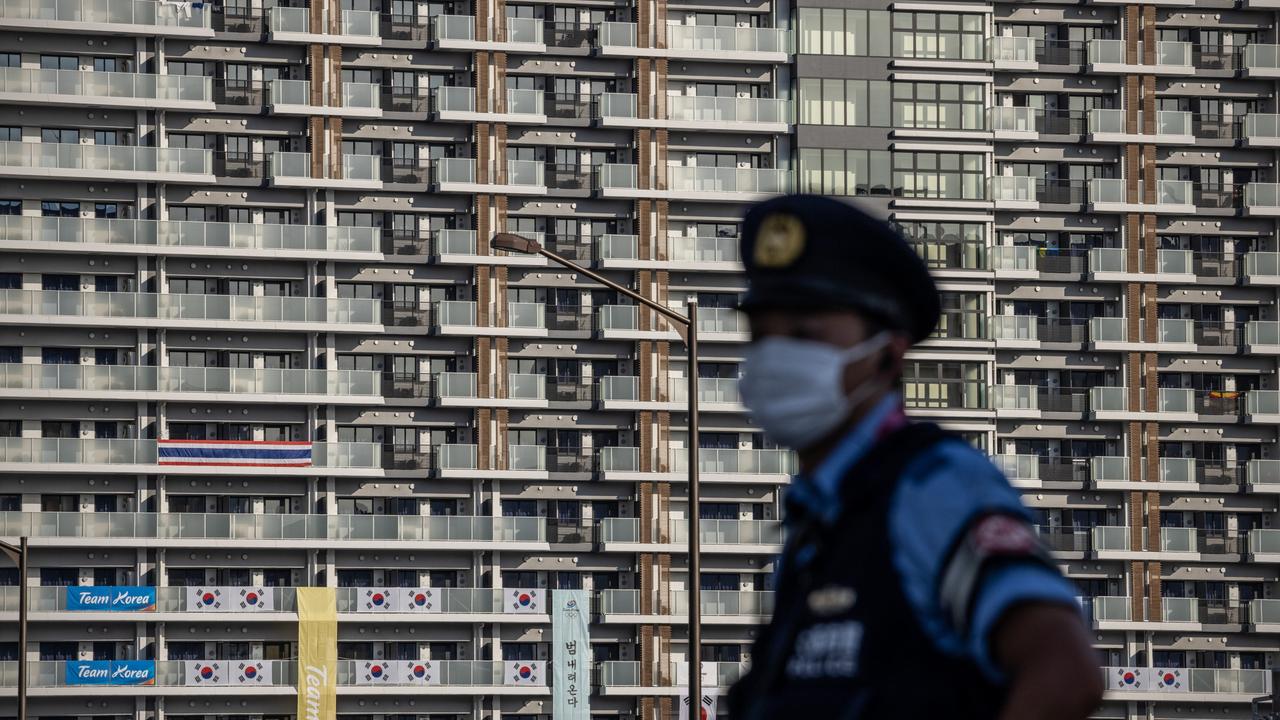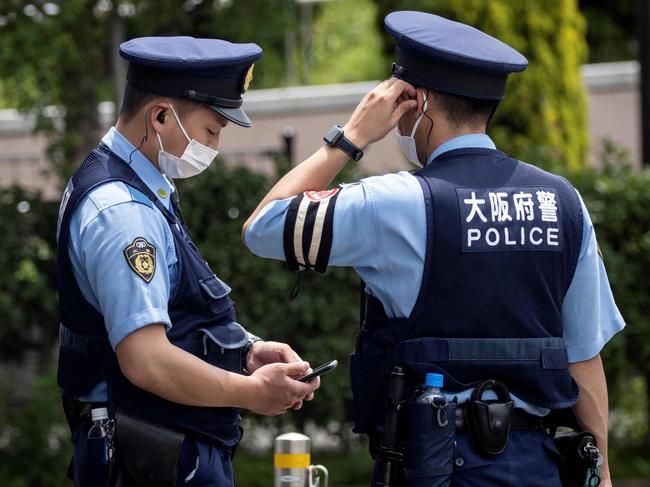Tokyo Olympics 2021: Police called to village after drinking session gets out of hand
The extent of damage caused by Australian athletes in a boozy party in the Tokyo Olympics village over the weekend has been revealed, along with the sports to which those athletes belonged.

Olympics
Don't miss out on the headlines from Olympics. Followed categories will be added to My News.
Australian chef de mission Ian Chesterman confirmed Australia’s athletes smashed a hole in the wall at the Tokyo Olympic village during their drunken spree over the weekend, which resulted in cleaners having to mop up vomit and repair the beds and walls.
“Yes, there was hole in the wall,’’ said Chesterman.
“Some big people were wrestling and these are some flimsy temporary walls so I don’t think he had to do much actually.’’
Newscorp has revealed that the rowers and rugby players were involved in the late-night revelry.
Chesterman said a few individuals left their rooms in “a messy and unacceptable state” prior to flying back to Australia.
Two apartments had minor damage, one each involving athletes from the men’s rowing and rugby teams.
The CEOs of both organisations have apologised to the AOC and made their own inquiries into the athletes’ behaviour.
Ten Australian athletes had to briefly isolate and undergo Covid tests after joining the unauthorised party at the Olympic athletes’ village on Saturday night and Sunday morning.
But the good-natured hijinks were deemed a serious breach of village rules, and no disciplinary action was taken against those involved.
The news came after a wild weekend which saw police called to a separate party in the early hours of Saturday morning, after an official who intervened to prevent some “out-of-control behavior’’ was injured.

Chesterman said Australian officials had been told after the event that a party with loud music was held in the park within the village boundary on Friday night. This was the event attended by police at 2am Saturday, but no Australians were involved.
“And then on Saturday night there was a similar mingling,’’ Chesterman said.
“Afterwards we became aware of that and that a few of our athletes had been mixing with other athletes not in the heat of the party but in places… outside of our direct allotment.
“That’s clearly something we don’t encourage.’’
Covid rules prohibit athletes mixing with athletes and delegates from other countries in a bid to prevent cross-infection.
Chesterman said officials identified about 10 athletes who had been mingling with others, and “we took the necessary precautions around that.
“We brought that small group into our procedures, tested them, proved they were (negative) non-infectious and they’ve rejoined the group,’’ he said.
“That was just a very, very small number of athletes out of the total cohort.

“It was a very minor offence, I’ve not taken any disciplinary action, none was necessary.
“They understood that what they did was not according to the Australian playbook. But nonetheless it didn’t lead me to any great concern.’’
Chesterman said he would not name the individuals or the sports involved because no disciplinary action had been required.
All athletes involved had finished competing.
The IOC has declined to give details about the more serious incident, which happened during an all-night party which started on the Friday night.
Tokyo Metropolitan Police told official broadcaster NBC that police had been called to the village at 2am on Saturday following reports of a “disturbance’’.
An official working at the village had suffered a sprained leg during the disturbance.
Earlier, the Australian Olympic Committee clarified Aussie athletes had been mingling but were not part of a bigger party which ended when police were called.
There was confusion about several gatherings in the village which took place on Friday and Saturday nights.
On Friday an all-night party in the village park ended when police were called amid reports of injuries. On Saturday, another late night party took place.
The AOC was initially unsure of the timing of the incident involving the Australians, and the IOC also first identified the party as happening on Saturday, before clarifying it was on Friday night.
Games officials have confirmed a group of athletes and delegates had been busted with booze in an outdoor drinking session at the village park on Friday night.
Tokyo 2020 chief Toshiro Muto said: “athletes and members of the delegations were at the park in the village and they were drinking alcohol”.
“Currently we are investigating the situation and based on the results … will take appropriate action.
“Regarding the police, after the incident occurred, we had heard they came. We haven’t learnt about the details yet.’’
An AOC spokesman said: “no Australians have been injured or involved in any incidents involving the police’’.
Alcohol is allowed to be consumed in individual’s rooms, but not in public.
With summer temperatures in Tokyo not dropping below about 26 degrees all night, it seems the party went all night with loud music heard until after 4am Saturday.
Such parties are a regular occurrence in the athletes’ village as mainly young sportsmen and women who have trained for years let off steam when their competition ends.
It can be disruptive for other athletes who still have to compete.
And with Tokyo under a state of emergency and most restaurants not serving alcohol – due to a government request to limit it because “loud talking’’ can spread Covid – officials had been keen to keep things sedate at the village. Athletes have also been required to leave the country within 48 hours of their competition ended.
On unrelated matters, Mr Muto said six people associated with the Games had their accreditation revoked.
This included two Georgian judo competitors who snuck out of the village to see a friend.
Another eight people had their accreditation suspended and 10 people had received “strict warnings’’ for breaches of the Covid-safe rules.





